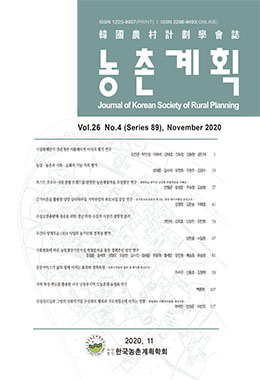With the COVID-19 pandemic, the global economy has stagnated and our daily lives have changed. The rural economy is also experiencing damage, such as an average of 65% or more decrease in the number of visitors to rural experience resort villages due to the spread of COVID-19. In order to minimize the damage arising from the prolonged coronavirus, a hospitality system in response to changes in rural tourism behavior and consumer demand is needed to revitalize rural areas and maintain continuous economic independence. Therefore, this study attempted to find ways to utilize landscape resources such as education, culture, history, and ecology in order to complement the existing experience programs in connection with local resources and local environment. Wibong Village, which is the subject of the study, attempted to revitalize the village using the resources through the “Creative village creation” project in 2015. Due to poor management of historical resources, difficulty in operating experience programs, and response to changes in the natural environment, the rate of implementation of the project plan was very low. Currently, the demand for experience is also decreasing due to the COVID-19 effect, so it was judged that it was necessary to develop an experience village program suitable for the needs of experienced visitors by discovering additional local resources for the continuous operation of the experience village. In order to solve the problem of the use of landscape resources and the spatial composition of the study site, additional investigations of local resources were made, and an experience program course that could be operated by theme was proposed by configuring a space suitable for the use of landscape resources. By dividing the additionally investigated landscape resources into history, ecology, and region, an experiential course was created to separate the traffic lines, and the space composition for large-scale experienced visitors that had been previously operated was constructed in a form suitable for the post-corona era. In addition, at least two experiential tour courses that can be operated by period were proposed to maintain economic effects. Starting with this study, if further research on the creation and spatial composition of a rural experience village centered on the connection with the region, it will be used as research results that can be referenced in projects such as village creation, rural space planning, and living area analysis. It is expected that it will be able to effectively cope with the construction of a rural area suitable for the post-corona era, where demand is expected to increase in the future.


